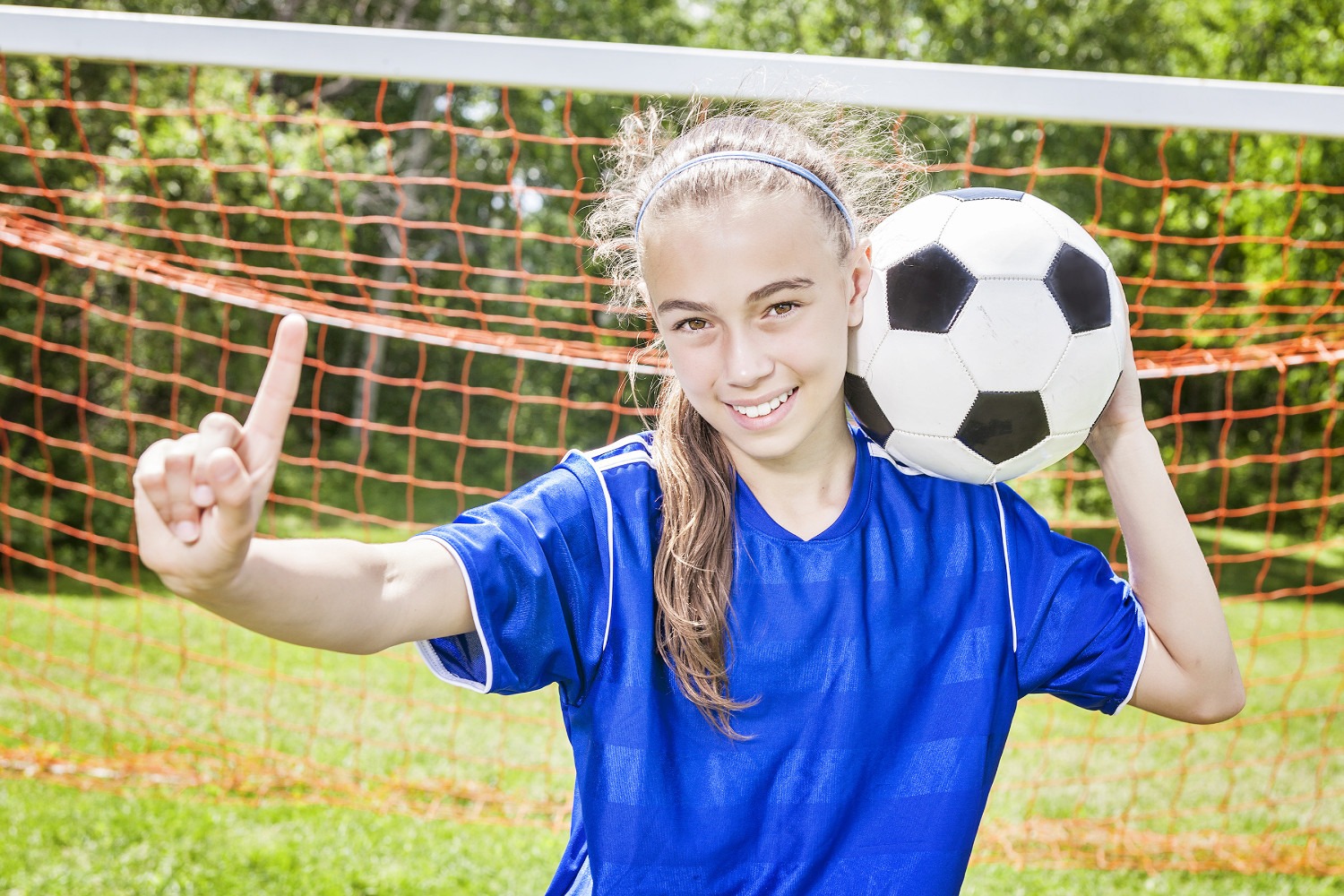If you’re a student who plays sports for your school or within your community, you may be worried about how getting braces will affect you on the court or field. This is a very common concern, one that we hear almost daily. We treat a number of student-athletes at Swan Orthodontics, and often have patients ask if braces will mean they have to sit out their favorite sports while wearing them. Fortunately, this is an unfounded concern! You can continue playing any sport you like uninterrupted while you’re undergoing orthodontic treatment. However, you will need to be careful to not cause any harm to your braces, teeth, or mouth, especially if you play contact sports. Keep reading below to find out how you can protect your braces – and yourself! – while playing sports.
The single best way to protect your teeth when playing a sport is to wear a mouthguard. This is an easy, efficient, and proven way to prevent damage from occurring, even when participating in high-contact sports like football and hockey. But even for light contact or low-impact sports, we recommend you keep a mouthguard in, since even a small amount of pressure on your braces can irritate or even cut the inside of your mouth and gums.
When you’re wearing braces, it’s worth investing in an orthodontic mouthguard. Regular mouthguards are made of thermoplastic, which heats up in your mouth and molds to your teeth. This kind of mouthguard does not evolve with your teeth as they shift, meaning they can actually work against your braces, interrupting the straightening process. The mold may end up fitting a little too snugly around the brackets, and if you sustained a hard enough hit, the impact could shift them, or even knock the brackets off completely. This kind of incident results in extra orthodontic visits, and can contribute to increased treatment times.
On the other hand, orthodontic mouthguards are made from high-grade silicone, and cushion your lips from bumping against your teeth and braces. This helps protect the brackets on your teeth from any impact-related damage. It also prevents scenarios like your lip getting caught in your braces, which can be a painful experience. While orthodontic mouthguards are typically slightly larger than regular mouthguards, they are no less comfortable to wear.
Knowing the difference between a regular mouthguard and an orthodontic mouthguard will help you make the best decision based on your needs and lifestyle. Below we will look at some over-the-counter options for mouthguards that are effective protection. While all of these mouthguards will be able to meet your basic needs, we strongly recommend our sports-playing braces patients consider a custom-made mouthguard from Swan Orthodontics.

OTC mouthguards
Shock Doctor is widely regarded as one of the best brands of orthodontic mouthguards. These models are made to conform to the upper brackets for comfort, helping to reduce or eliminate cuts and scrapes. They’re made of 100% medical grade silicone, and are able to adjust to the movement of your teeth during treatment. These mouthguards are affordably priced, and available in both strapped and unstrapped styles.
Mouthguards with a lip guard are a must for patients in braces who regularly play sports. Lip guards help to keep athletes from accidentally biting themselves, but don’t hinder the ability to have a conversation, either. Vettex mouthguards contain lip guards, and while this makes them a little bulkier, they are still a lightweight option. While they are inexpensive, keep in mind they have a more generalized design, and are not made specifically for athletes in braces.
Tapout is a newer, more diverse type of mouthguard that will re-mold to your teeth multiple times as they change. They can be used by athletes in braces, as well as those without, since they adjust based on your current bite. Tapout mouthguards have a distinct design that promotes airflow, as well as possessing a comfortable fit that makes them easy to talk with.
What happens if I am injured while wearing braces?
If your mouth takes a direct hit while you’re in braces, get in touch with us as soon as possible! We are always available in the event of an orthodontic emergency, and once we know what’s happening in your specific case, Dr. Swan will be able to determine if we need to get you in for an emergency appointment or not. Remember that the best way to defend your teeth, mouth, and braces while playing sports is by wearing a mouthguard, preferably a custom-made orthodontic one by Swan Orthodontics. But even a basic mouthguard can help prevent hits that may lead to bleeding gums, broken brackets, or potentially fractured teeth.

Producing straighter smiles for student-athletes in Caledonia
Swan Orthodontics is invested in helping you continue to participate in your favorite sports while protecting your teeth and braces. The protection that mouthguards provide is an excellent investment, shielding your teeth while they move into their new permanent positions. A custom-made mouthguard from Swan Orthodontics is optimal, but we encourage any kind of mouthguard over not wearing one at all.
If you are currently a patient undergoing orthodontic treatment with us, or know that you’ll be having braces put on soon and are concerned about the impact braces will have on your ability to play sports, get in touch today and let us set your mind at ease! Dr. Swan and the rest of our team are always happy to answer any questions you have, or talk through any concerns. With mouthguard protection and the support of Swan Orthodontics behind you, you can have the best of both worlds: your favorite sports and a straighter smile!

